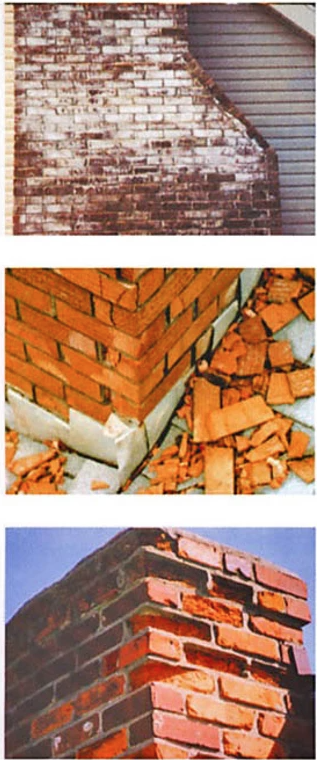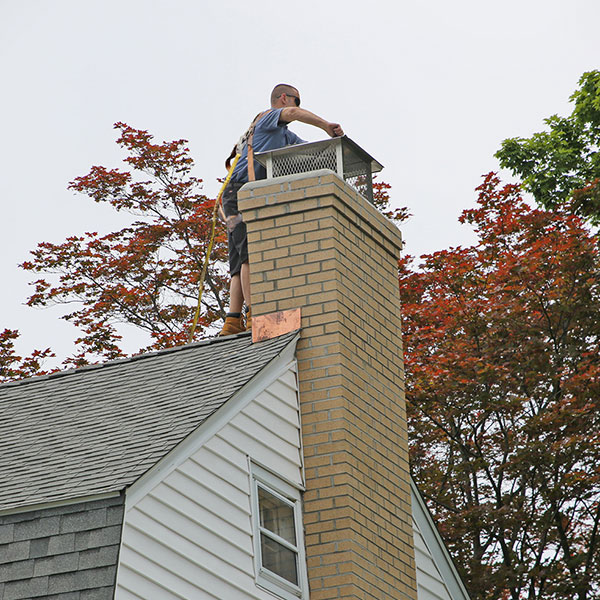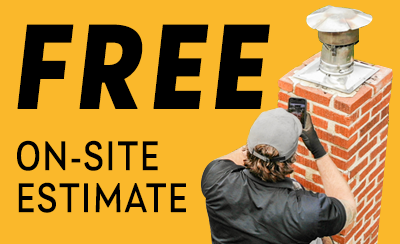Chimney Maintenance Tips for Years of Top Performance
Most people don’t give a second thought to their chimneys – until the chimneys start breaking down and causing problems. No chimney will last forever, but there are ways to keep yours running safely and optimally for years. Here are some chimney maintenance tips you’ll want to know.
 Water + masonry = bad recipe
Water + masonry = bad recipe
Water is a major enemy of the bricks and mortar that make up your chimney structure. There are two reasons for this:
- When allowed in through cracks in deteriorated mortar joints, rain water begins an internal process of decay. When the temperature freezes, the water expands, causing even more damage.
- If the compromise is bad enough to let water get completely through the bricks, it will begin to cause damage to internal and often unseen areas of your chimney structure including the chimney liner and other components.
If you have a leaky chimney, you may notice these signs:
- Water on the floor of the firebox
- Damp patches on walls and the ceiling near the chimney
- Strong, musty odors coming from the fireplace
- Efflorescence (white stains) on the exterior chimney bricks
When a chimney leak is caused by damage to its bricks and mortar, the first step is to schedule a chimney inspection. This will be followed by masonry repair work or chimney waterproofing or both.
The Chimney Safety Institute of America (CSIA) makes this statement:
“All masonry chimney construction materials, except stone, will suffer accelerated deterioration as a result of prolonged contact with water. Masonry materials deteriorate quickly when exposed to the freeze/thaw process, in which moisture that has penetrated the materials periodically freezes and expands causing undue stress. Water in the chimney also causes rust in steel and cast iron, weakening or destroying the metal parts.”
Chimneys also can suffer damage from:
- Cracks in the chimney crown that allow water to move into the bricks below
- Warped or damaged roof flashing that is designed to block the gap between the exterior chimney and the roof
- Normal house-settling, pounding hail, earthquakes and gale-force winds
- An improperly constructed chimney footing that shifts and sinks and causes the chimney to rock and eventually crack or lean to one side
 Why you need a chimney cap
Why you need a chimney cap
Full-width custom chimney caps are powerful deterrents against water and debris infestation. These devices cover the entire top of the chimney, guarding both the flue opening(s) and the chimney crown.
In addition to preventing water damage, chimney caps keep leaves, twigs, falling fruit, small animals and those animals’ nests out of your chimney flue, where they will create drafting obstructions. If your chimney has no cap, you should have a full-width cap installed as soon as possible.
The value of a CSIA-certified chimney inspection
It’s impossible for most homeowners to know the exact condition of their chimney system at any given time. Professional chimney inspectors who are certified through the Chimney Safety Institute of America have the tools and training to closely examine your chimney, pinpoint signs of damage and then make the necessary repairs.
Annual inspections may save you thousands in chimney repair or chimney rebuilding costs. Waterproofing your masonry is a great way to keep damaging water away from the bricks. A chimney cap is a 24-hour guard at the top of your chimney. All this plus professional maintenance work when necessary will add years of safe and efficient performance to your chimney.
Is your chimney in need of some attention? Felgemacher Masonry & Chimney has served the Buffalo, NY, and Rochester, NY, regions since 1953 with the very best in chimney inspection, chimney sweep and chimney repair services. Put our CSIA-certified experts to work on your chimney today. Call (716) 907-4914 in the Buffalo area or (585) 308-4914 in and around Rochester.



